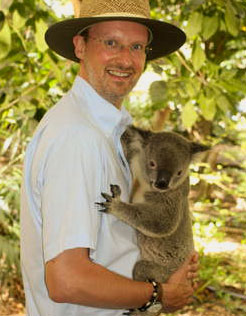
absolutely down-under
Like my two previous shows, episode 101 also comes to you from Australia. As I get woken up by exotic birds outside my bedroom window every morning I thought I should record my introduction at this time of the day to share this experience with you because this has become my regular Australian alarm clock. As I live only a couple of hundred metres from the national park I assumed they must have some kind of noisy monkeys in that park but then I discovered, it was birds, such as cockatoos, kookaburras, and some very colourful small parrots that I cannot identify. After a month in the country I finally manage to sleep through this incredible noise, and if I didn’t, I would have to get up at 4:30 every morning when this dubious concert starts.
I only learned this week that my class and tutorial at the University of the Sunshine Coast next week will not take place because of Australia Day, a national public holiday. So I started asking people what this national day is all about and I received many, but sometimes contradictory answers because while this day is meant to promote and celebrate national unity it seems that every year it is accompanied by the criticism that instead of promoting multiculturalism this day commemorates the 26 January 1788 the arrival of the First Fleet at Sydney Cove where English settlers put up their flag. So opponents tend to call it “Invasion Day” and propose to change the national public holiday to another date. Let me share with you what some Australians told me about Australia Day. (If you want to find out more about Australian Identity you may want to revisit Anne’s show 76 on “mateship”)
absolutely borrowed
Have you ever thought about your own identity? Or about borrowing another person’s identity to see what it is like to live the life of somebody else? Have you ever marveled about what your life would have been like if you had grown up in another culture? Well, let us talk about a European project which we finished last year together with students in Sweden, Spain, England, Lithuania and Hungary. Before starting the project I went to Brighton to plan this European project which was called “Borrowed Identities”. I got together with Vy, Lili, Jessica and Ross from the School of languages at the University of Brighton. We discussed whether it is possible to borrow an identity or not? And what identity really is? And how Ben Kingsley and Ghandi fit into this picture.
absolutely diplomatic
Have you ever been to a foreign country and criticized the system or the people of that country? Well, if you have not made the mistake yourself, I am sure you have seen your compatriots fall into this trap? I discussed with John Kaethler how we would react if a guest from a foreign country would criticize our home country and our habits. In our category “absolutely diplomatic” John suggests, that if someone asks you your opinion about politics, sometimes it may be better to keep your mouth shut, instead of sharing negative impressions about the host country.
Our next show will be coming to you from Anne Fox in Denmark on 05.02.
Until then –
Bleiben Sie absolut interkulturell!
The host of this show is: Dr. Laurent Borgmann
Editor: Dino Nogarole


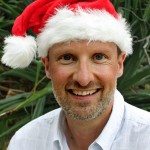
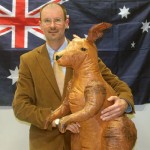 absolutely down-under
absolutely down-under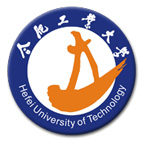

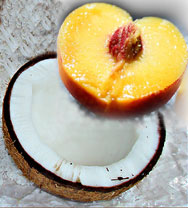 Even if we expect differences when we travel or meet foreigners in our own countries – the best and most intensive intercultural learning is always accompanied by small culture shocks. Our show today will focus on the
Even if we expect differences when we travel or meet foreigners in our own countries – the best and most intensive intercultural learning is always accompanied by small culture shocks. Our show today will focus on the 
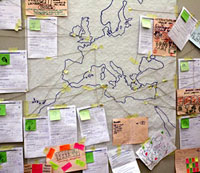 Today we will focus on the
Today we will focus on the